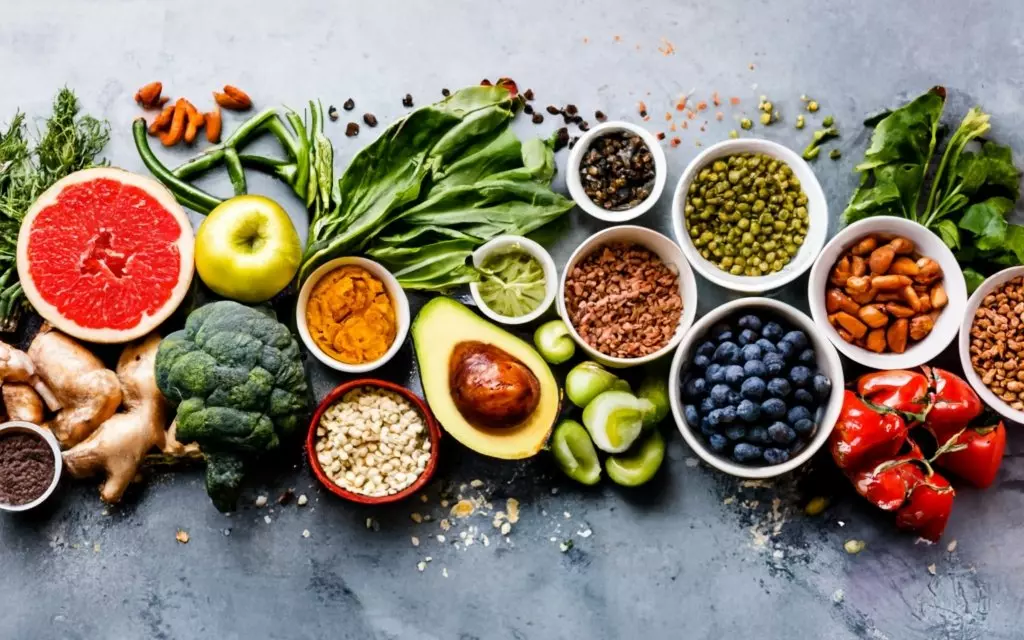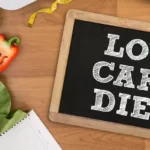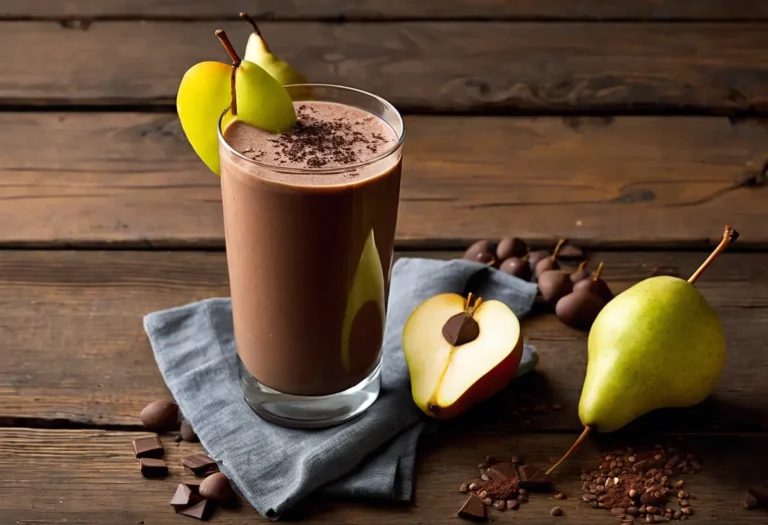The ketogenic, or keto, diet has become one of the most popular diets in recent years. This low-carb, high-fat diet can provide major health benefits, especially for diabetes and weight loss. However, it also comes with risks and requires careful planning. This comprehensive guide covers everything you need to know about the ketogenic diet.
What is the Ketogenic Diet?
The ketogenic diet is a very low-carb, high-fat diet. It is similar to the Atkins and other low-carb diets. On a keto diet, you eat fewer carbs and replace them with fat. This reduction in carbs puts your body into a metabolic state called ketosis. When this happens, your body becomes very good at burning fat for energy. It also turns fat into ketones in the liver, which can provide energy for the brain. Ketogenic diets can cause large reductions in blood sugar and insulin levels. This, along with the increased ketones, has many health benefits.
How Low Carb is a Keto Diet?
On a ketogenic diet, you usually get less than 50 grams of carbs per day. Some types even restrict carbs to 20-30 grams per day. The fewer carbs you eat, the more effective the diet seems to be for reaching ketosis and delivering fast weight loss and other health benefits.
What About Protein and Fat?
When carb intake is very low, protein can be moderate. Getting 15-30% of calories from protein is recommended. The rest of your calories come from fat. A keto diet is high in healthy fats, like olive oil, avocado oil, grass-fed butter, nuts and seeds. Some types of the ketogenic diet even have you getting 80% of calories from fat.
The Many Benefits of Keto Diets
Ketogenic diets provide many health benefits, especially for people with certain conditions or diseases. Here are some of the top scientifically-proven benefits of following a ketogenic diet:
Weight Loss
Keto is very effective for weight loss. It promotes quick and steady weight reduction without hunger or calorie counting. Many studies show more short-term weight loss on keto compared to low-fat diets.
Reasons keto promotes weight loss include:
- Appetite regulation – High fat and low carb reduces hunger hormones like ghrelin. As a result, you naturally eat less without feeling hungry or deprived.
- Water weight loss – Burning carbs releases stored water from muscles and glycogen. This causes rapid initial weight loss.
- Increased fat burning – Your body becomes good at using fat and ketones for energy instead of carbs. Consequently, your metabolism shifts to burning fat around the clock.
Diabetes Management
The ketogenic diet can greatly improve insulin sensitivity and blood sugar control. It’s a very effective diet for managing diabetes.
Reasons keto helps control diabetes include:
- Lower blood sugars – Even a moderate reduction in carbs can quickly lower blood glucose and insulin. Keto takes this further for even better effects.
- Reversed insulin resistance – Burning fat instead of carbs decreases insulin resistance that leads to type 2 diabetes.
- Less reliance on medication – Lower blood sugars and insulin resistance reduces the need for diabetes medications. Some diabetics can even stop medication on keto.
Improved Heart Health
Despite high fat, keto diets improve heart disease risk factors, including:
- Lower blood triglycerides – High triglycerides increase heart disease risk. Keto diets are linked to decreased triglycerides.
- Increased HDL cholesterol – HDL is the “good” cholesterol and protects against heart disease. It typically rises on keto diets.
- Lower blood pressure – Many people have a large drop in blood pressure on a keto diet.
- Weight loss – Excess weight harms heart health. The weight loss from keto improves it.
Neurological Disorders
A ketogenic diet is promising for improving or reversing some neurological disorders, including Alzheimer’s, Parkinson’s, and epilepsy. Reasons include:
- More efficient energy source – In Alzheimer’s, the brain has trouble using glucose for energy. Ketones provide an alternative fuel source.
- Decreased inflammation – Keto diets reduce brain inflammation, a key cause behind neurological disorders.
- Better neurotransmitter synthesis – Ketones are used to make GABA and glutamate, neurotransmitters that decline in brain disorders.
The keto diet began as a therapy for epilepsy in the 1920s. It’s still one of the most effective epilepsy treatments.
Other Health Benefits
Research is still ongoing, but early evidence suggests keto diets may also benefit:
- PCOS and infertility
- Certain cancers
- Autism
- Migraine headaches
- Acne
- Mental clarity and focus
Potential Dangers and Side Effects
The keto diet seems to be safe for most healthy people. However, there are some potential dangers:
The “Keto Flu”
When starting a keto diet, you may have headaches, fogginess, cramps, fatigue, irritability, and other flu-like symptoms as your body adapts to burning fat instead of glucose for energy. This usually resolves within a few days to weeks.
Nutrient Deficiencies
A very restrictive keto diet could lead to vitamin and mineral deficiencies. Vitamins that vegetarians and vegans often lack—like vitamin B12 and iron—are even more important on keto.
It’s vital to eat a variety of non-starchy vegetables, healthy fats, quality protein, and take supplements to prevent deficiencies.
Blood Sugar Issues
Lowering carb intake too much can potentially lead to dangerously low blood sugar in diabetics on medication. Blood sugar should be closely monitored when starting keto. Medication doses likely need adjustment.
Digestive Problems
Sudden diet changes and high fat meals can cause diarrhea or constipation. This usually resolves as your body adapts to more fat. Staying hydrated and increasing fiber from low-carb vegetables can help.
Increased LDL Cholesterol
Some people have a rise in LDL “bad” cholesterol on keto. However, LDL particles change to a less harmful pattern. Overall, keto improves heart disease risk factors.
If you have high cholesterol or heart disease, have your doctor monitor your cholesterol on keto.
Who Should Avoid a Ketogenic Diet?
For most people, keto is safe and very effective. But some people should be cautious with low carb diets:
- Pregnant or breastfeeding women – They need extra carbs for the developing baby.
- Children – Keto can affect growth and nutrition if not done properly. Seek medical supervision.
- Underweight people – They need to be careful to meet calorie needs on keto.
- Athletes – Some research shows low-carb can harm performance in elite athletes.
- Diabetics on medication – Blood sugar monitoring is critical to prevent lows. Work with your doctor.
The Different Types of Ketogenic Diets
There are several versions of keto diet plans:
Standard Ketogenic Diet (SKD)
This is the classic keto diet. You eat moderate protein, low carbs, and high fat. Typically 75% fat, 20% protein and 5% carbs. You don’t cycle on and off the diet.
Cyclical Ketogenic Diet (CKD)
On CKD, you follow SKD most days. But 1-2 days per week, you consume high carbs to replenish energy. Popular with bodybuilders.
Targeted Ketogenic Diet (TKD)
TKD is for athletes. You eat high fat, low carb most of the time. But before intense exercise, you have fast-digesting carbs for an energy boost.
High-Protein Ketogenic Diet
This approach emphasizes more protein, at 35-60% of calories, with less fat. It preserves muscle when dieting. Good for athletes or bodybuilders.
Creating a Ketogenic Meal Plan
Here are tips for creating a custom keto meal plan:
- Calculate your protein, carb and fat grams using a keto calculator.
- Focus on healthy unsaturated fats like olive oil, avocado, nuts, seeds and fatty fish. Limit saturated fat.
- Choose low carb vegetables like leafy greens, cauliflower, broccoli, asparagus, peppers, etc.
- Eat moderate portions of meat, fish, eggs, high-fat dairy and protein powder.
- Drink plenty of water and salt food to replenish electrolytes.
- Avoid grains, starchy vegetables, sugar, alcohol and fruit.
Here’s a sample day on a standard ketogenic diet:
- Breakfast: Eggs fried in olive oil with greens, avocado and bacon.
- Lunch: Bunless burger with cheese, mushrooms and guacamole. Salad with oil and vinegar.
- Dinner: Salmon with butter-cooked broccoli and salad with creamy dressing.
- Snacks: Hardboiled eggs, raw veggies, nuts, dark chocolate.
Tips for Success on the Ketogenic Diet
Here are tips to get the most out of keto:
- Gradually reduce carbs over weeks to ease the transition.
- Read ingredient labels to avoid hidden sugars and unhealthy fats.
- Try delicious keto recipes for variety.
- Consider supplements for electrolytes, fiber and nutrients.
- Combine exercise with rest to maximize fat burning.
- Test ketones to ensure you achieve ketosis.
- Stick with it – benefits take a few weeks. Consistency is key!
Conclusion
The ketogenic diet promotes fast weight loss and has potential to help diabetes, brain disorders, PCOS and more. However, a very low-carb diet requires commitment. Do your research, consult your doctor, and focus on nutrient-dense whole foods. With dedication, the health benefits can be life-changing.
Frequently Asked Questions about the Ketogenic Diet
Q: What is a ketogenic diet?
A: A ketogenic diet is a very low-carb, high-fat diet that puts the body into ketosis, a metabolic state where it burns fat for fuel.
Q: How does a ketogenic diet work?
A: By limiting carbs to around 50 grams per day or less and filling up on fat, a ketogenic diet shifts the body to burning fat and ketones instead of glucose for energy.
Q: What foods can I eat on a ketogenic diet?
A: Meat, fish, eggs, full-fat dairy, healthy oils, low-carb vegetables like leafy greens, avocado, nuts and seeds. Sugary foods, grains, starchy veggies and fruit must be avoided.
Q: Can I lose weight on a ketogenic diet?
A: Yes, ketogenic diets often lead to quick and significant weight loss in a short time without hunger. It’s an extremely effective diet for weight loss.
Q: Are there any health benefits to following a ketogenic diet?
A: Potential benefits include better blood sugar control, reduced risk for heart disease and neurological conditions like epilepsy, Alzheimer’s and Parkinson’s disease.
Q: Will I experience any side effects while on a ketogenic diet?
A: Possible side effects include keto flu, fatigue, headaches, constipation and nutrient deficiencies if unbalanced. They are usually temporary.
Q: Is it safe to follow a ketogenic diet long-term?
A: For most people it is safe long-term. But certain populations like pregnant women, children and diabetics should exercise caution with carb restriction.
Q: Can I drink alcohol while on a ketogenic diet?
A: Alcohol is high in carbs, so it must be limited. Dry wines or clear liquors like vodka in moderation won’t knock you out of ketosis.






